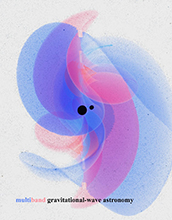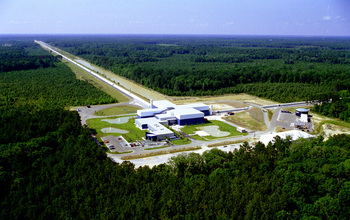搜索结果: 1-6 共查到“天文学 wave astronomy”相关记录6条 . 查询时间(0.118 秒)

Observing 'black hole symphony' using gravitational wave astronomy(图)
Observing black hole symphony gravitational wave astronomy
2019/12/2
Shrouded in mystery since their discovery, black holes continue to be mind-boggling enigmas in our universe.Limitations in observation technologies have kept scientists from grasping a more complete p...

Scientists to discuss new developments in gravitational-wave astronomy(图)
Scientists new developments gravitational-wave astronomy
2017/10/25
Journalists are invited to join the National Science Foundation (NSF) as it brings together scientists from the Laser Interferometer Gravitational-Wave Observatory (LIGO) and Virgo collaborations, as ...
Submillimeter Wave Astronomy Satellite observations of Comet 9P/Tempel 1 and Deep Impact
Comet Tempel-1 Radiative Transfer Radio Observations Comets
2014/12/23
On 4 July 2005 at 5:52 UT the Deep Impact mission successfully completed its goal to hit the nucleus of 9P/Tempel 1 with an impactor, forming a crater on the nucleus and ejecting material into the com...
Comparison of LISA and Atom Interferometry for Gravitational Wave Astronomy in Space
LISA and Atom Interferometry Gravitational Wave Astronomy Space
2011/9/14
One of the atom interferometer gravitational wave missions proposed by Dimopoulos et al.1 in 2008 was called AGIS-Sat. 2. It had a suggested gravitational wave sensitivity set by the atom state detect...
The Massive Pulsar PSR J1614-2230: Linking Quantum Chromodynamics, Gamma-ray Bursts, and Gravitational Wave Astronomy
The Massive Pulsar PSR J1614-2230 Linking Quantum Chromodynamics
2011/1/11
The recent measurement of the Shapiro delay in the radio pulsar PSR J1614-2230 yielded a mass of 1.97 +/- 0.04 M_sun, making it the most massive pulsar known to date. Its mass is high enough that, eve...
Testing Modified Gravity with Gravitational Wave Astronomy
Testing Modified Gravity Gravitational Wave Astronomy
2011/1/13
The emergent area of gravitational wave astronomy promises to provide revolutionary discoveries in the areas of astrophysics, cosmology, and fundamental physics. One of the most exciting possibilities...

